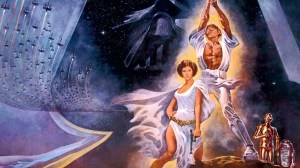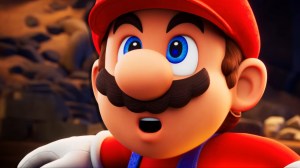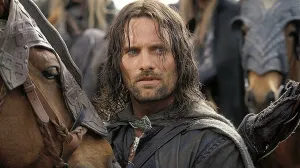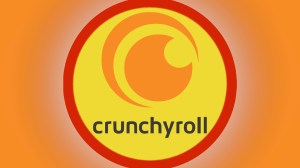DC, as a company, has a very big focus on the legacy of its characters. Ever since the Silver Age began and Barry Allen took up the mantle of the Flash, DC has been unafraid to push forward and introduce new characters who carry on the mantle and mission of the heroes who inspired them. Not only that, but these new characters make the name their own, creating their own version of the classic characters that have their own fanbase, and fans are well known to argue over which version of which beloved character is the best. However, there are some who argue that DC places too much emphasis on the legacy of their characters, and that ultimately drags them down. Some argue that this focus on legacy can’t work because DC never allows their characters to truly change or move on. So let’s discuss the pros and cons of legacy in DC, when it works, and when it doesn’t.
Videos by ComicBook.com
Why Legacy Is So Important
As we established above, the legacy of its heroes has been an important aspect of DC since the Silver Age at least, where characters like Green Lantern and the Flash were replaced with new versions that had the same name, but were wildly different characters. However, this isn’t really a legacy change in the way we see it today, as neither one was originally connected to their predecessor, with the original characters being from a different Earth (Jay Garrick was actually a comic book character in Barry’s world, initially). The first instance of a character taking over the mantle of another hero they were directly connected to is Ted Kord becoming the second Blue Beetle, having been an apprentice to the original Dan Garrett. This set the stage for the major characters to follow suit in passing on the torch to the next generation.
While plenty of characters involved legacy in some way, DC really made legacy a core part of their identity in the post-Crisis era and throughout the ‘90s. The start of the modern age of comics saw major shakeups to every major hero. Wally West became the new Flash, Kyle Rayner became the only Green Lantern, Tim Drake became Robin, Connor Hawke became Green Arrow, and even Wonder Woman was temporarily replaced twice in that time period. We saw “Reign of the Supermen” where people fought over who would take Superman’s place. “Knightfall” showed Batman giving up then reclaiming his name, with the following “Prodigal” arc showing that Dick Grayson was the true heir to Batman’s throne. These changes were massive and sweeping, and for the most part beloved. They showed that DC’s heroes weren’t just people, they were ideals to strive to become. It promised a future even beyond the lives of the beloved characters, where they would live on and the hope they inspired could never die out. There are plenty more legacy characters I could name, but the important thing is that most of DC’s most popular heroes have legacies of some kind, and they are important to uplift the character to new heights. They make the DC Universe feel more real. At least, when used correctly.
[RELATED: Is a Beloved DC Hero’s Legacy Ending Forever?]
DC Has a Legacy Issue
All of the beloved examples above are about legacy when it works, but there are plenty of times in comics, especially modern ones, where legacy characters fall flat. The problem with DC’s current legacy characters is twofold. The first part is that most of the pre-New 52 legacy characters (Wally, Connor, Dick) had their dead-mentors return to the role alongside them, sharing the name, which isn’t a problem in and of itself. Fans were and are willing to accept them sharing the title because each version felt distinct and like they had their own niche. Unfortunately, their stance as their mentors’ equals was wiped away with the New 52 reboot, which saw many of those legacy characters either wiped from existence or returned to their previous hero identities. For many years these characters suffered in a character limbo, which leads us to the second part of the problem, being the newly introduced legacy characters.
Let’s use Jace Fox Batman as an example. He was introduced in the wake of the Future State event, which showed a potential not-so-distant future for the DC Universe and has since made his modern day debut. However, he never really caught on, and there’s a reason for that. Fans already had an abundance of characters they saw as being Batman’s successor, the forerunners being Dick Grayson and Damian Wayne, and while Jace is a great character he lacked the build up and presence the older characters had. The same is true for all the new legacy characters in some capacity. Most DC heroes had a “next generation” version introduced twenty or thirty years ago, but because of the status quo nature of comics the originals always return, so that next generation is always just left with the promise of the future.
Unfortunately, that promise of the future falls apart when newer characters are introduced who are promised the same thing. DC continuously introduces more characters who are said to be the successors to the titles, when there are already characters who have claims to that. Because the originals will never leave, it leaves the two waves of legacy characters fighting to occupy the same space in comics, and because they’re fighting for the same spotlight, either neither gets enough or one hogs it all and the other is left to languish. This exact issue is going on with Tim Drake and Damian Wayne right now for the position of Robin, where Damian is the main Robin, and so Tim is just sitting there with nothing to do.
Legacy has always been important to the DC Universe, but it’s become a bit of a having your cake and eating it too scenario. DC wants to keep the old versions of their heroes around and introduce the next generation, but that just leaves the multiple new generations they’ve introduced fighting for any scraps of attention they can. Legacy will always be one of DC’s best aspects, but nowadays it feels like its characters are only focused on their legacies that will never arrive because they can never move on from their eternal comic book headliner role. Something has to give eventually, or all of DC’s best characters will only continue to sit in this nothing-burger position that satisfies nobody.








